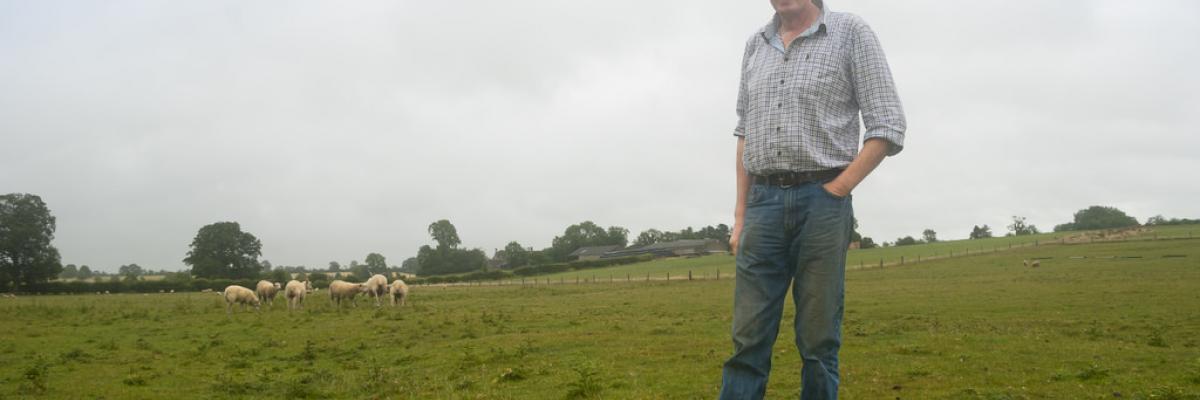

Cotswold Seeds First Hand: Herbal Leys with Alex Joynson
Watch the video
In this 3.45 minute video, Alex Joynson describes his experiences of planting herbal leys on his farm in Wiltshire. He explains that the farm consists of a sheep flock, a beef herd and cereals grown in organic rotation. He deals with a variety of soil types across his land, including Cotswold Brash, heavy clay and light dry gravels over clay, and has experimented over the years with red and white clover mixes. He describes his recent trials of growing strips of Cotswold Seeds herbal mixed ley on the clay and gravel soils; the red clover herbal ley has out produced the white clover ley on both. He has observed that the sheep prefer the herbal ley, and clearly graze it harder than the remainder of the field. He believes that the initial extra expense of the herbal ley is worthwhile, and anticipates seeing improvements in drought resistance and soil structure.
- Herbal leys can be successful on a range of soil types (grown in the same conditions, Alex observed that the mixed red clover herbal leys out produced the white clover leys).
- He has found the herbal ley to be particularly good for finishing lambs, and also good for tupping ewes; he has achieved 80% tupping success from using the red clover herbal mix.
- He has observed that the sheep demonstrate a clear preference for the red clover herbal ley, and seem to have more of a taste for the chicory in the herbal ley than the cattle do.
- A downside of the herbal ley that Alex has experienced is a lot of chicory stems in the silage (they round bale only); he has mitigated this problem by using more wrap on the silage.
- He can struggle to keep grass growth on the dry brash soils on the farm, so he is hoping that the herbal mixtures will help with this, and that the deep rooting effects of the chicory and clover will improve the soil structure.
